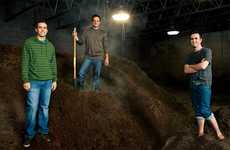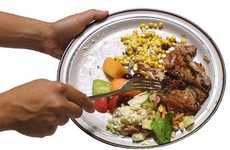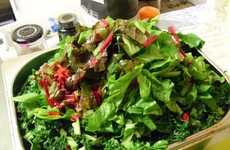



Salvaged food increases in popularity as consumers prioritize wasteless lifestyles
Implications - As lifestyles like freeganism become more widely accepted, consumers are becoming more aware of how much they waste. Recycled food consumption is transitioning from a niche choice to a way to decrease one's ecological footprint. This signifies how consumers are distancing themselves from lavish, wasteful lifestyles.
Trend Themes
1. Salvaged Food - As consumers prioritize wasteless lifestyles, salvaged food increases in popularity and proves an excellent area for businesses to innovate
2. Anti-food Waste - Food waste is seen as a serious problem in North America, leading innovators to create apps like PareUp that can help reduce such waste through connecting food distributors
3. Waste-reducing Recipe Sites - As household food waste reaches high levels, recipe sites like Sainsbury's Food Rescue have stepped up to help reduce waste by assisting in planning and preparing meals with minimal waste.
Industry Implications
1. Food Service - The food service industry can develop innovative programs like pay-as-you-feel cafes or salvaged food programs to help reduce waste and make better use of surplus food
2. Technology - Technology companies can create solutions to help individuals and businesses track their food waste in real time and help them to manage it more effectively
3. Agriculture - Food waste solutions can be applied upstream, such as creating alternative marketing campaigns for misshapen produce, allowing unsold produce to be sold at discount and thereby mitigating waste of perishable crops
6 Featured, 36 Examples:
297,875 Total Clicks
Date Range:
Oct 13 — Jul 14
Trending:
Average
Consumer Insight Topics:






































